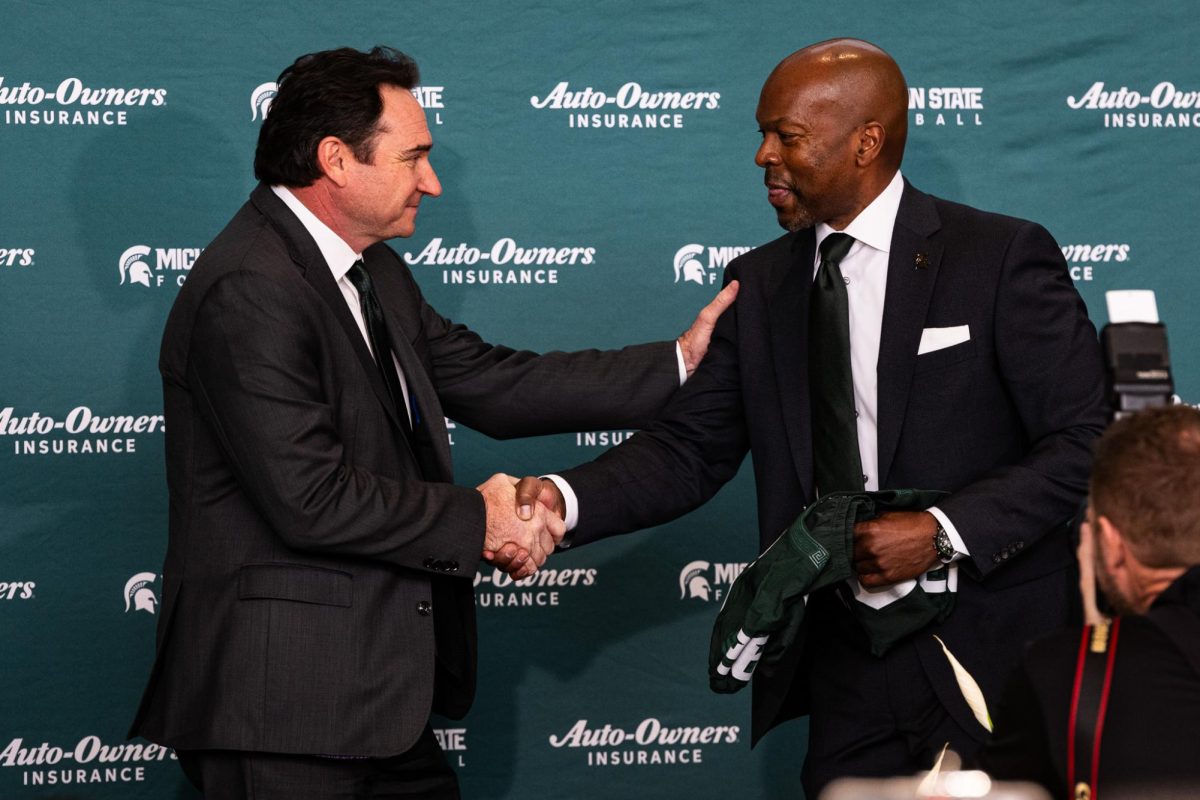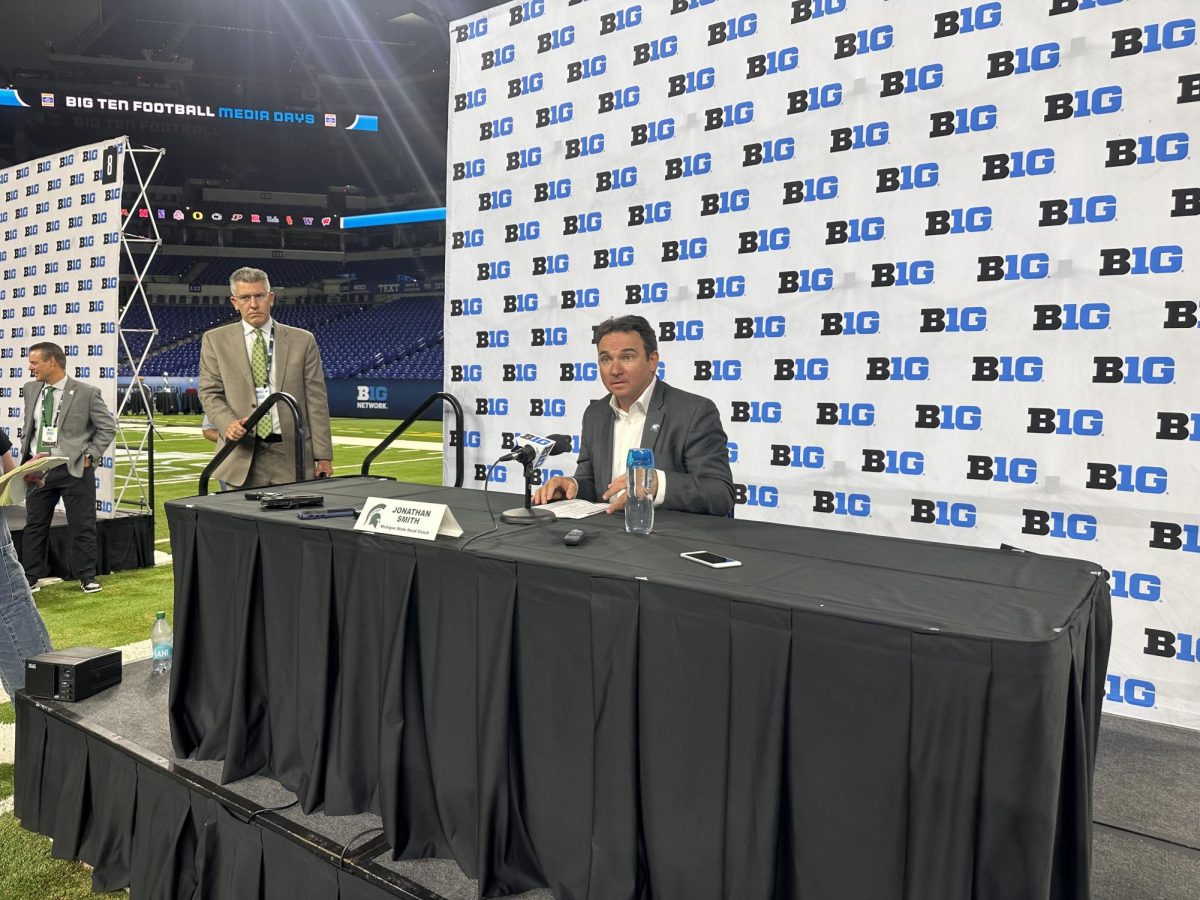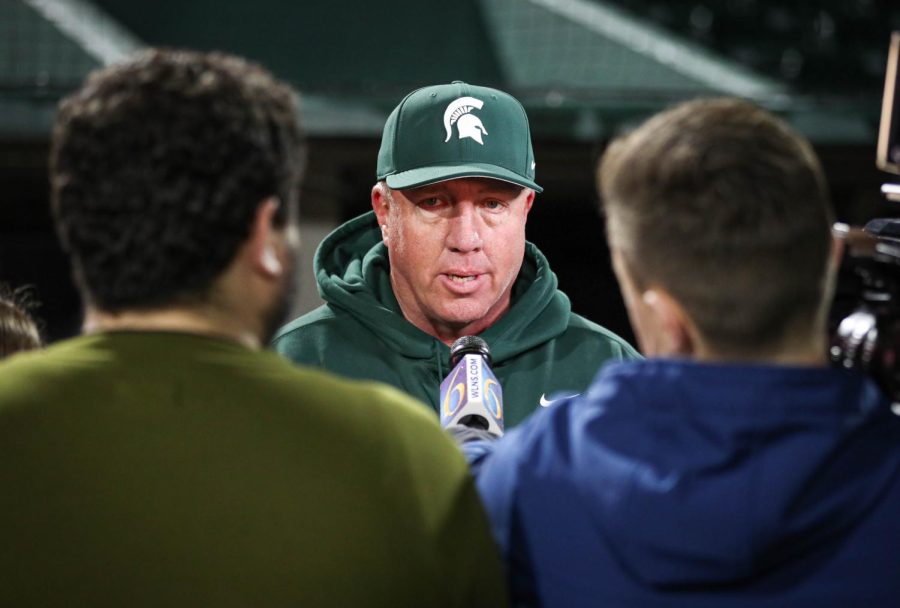The Michigan State-Notre Dame rivalry will once again raise its lively legacy on Sept. 17 after a two-year break. It is no secret that this matchup is consistently one of the most highly anticipated games of the non-conference season. However, this rivalry has more to offer one of many college football games on Saturdays. It has deep historical roots that have affected Michigan State, both as a football program and university, for years to come.
“
It is no coincidence that Michigan State was accepted in the Big Ten one year after the Notre Dame series was reestablished.
It is no coincidence that Michigan State was accepted in the Big Ten one year after the Notre Dame series was reestablished.
Back in the 1930’s, Michigan State was expanding its athletics. But in spite of their improvement on the football field, the Spartans never found themselves in a powerful conference. From 1896-1907, Michigan State (then known as Michigan Agricultural College) was in the Michigan Intercollegiate Athletic Association (MIAA). This was a small conference consisting of low-profile football schools such as Alma, Kalamazoo and Adrian Colleges.
In 1907, MSU seceded from the MIAA and remained independent for 42 years. The Spartans were slowly gaining respect as a school and football program, but were still one step away from becoming a nationally renowned regime. Perhaps the best way to take this step was by joining a prestigious conference.
Getting in a major football conference was on the agenda of former MSU president John A. Hannah. But if this were to happen, they would need to build their resume with a more difficult football schedule. That is where Notre Dame comes in.
Michigan State and Notre Dame first squared off in 1897. However, this series was cut off in 1921. Amid its quest to gain national standing as a football school, the Hannah administration approached Notre Dame with interest to rekindle the rivalry.
Hannah initially offered to play Notre Dame every year with 80 percent of the games held in South Bend, Ind. Astonishingly, the Irish insisted that the games be hosted evenly between the two schools. In 1949, the rivalry was reinstated. This new series of the rivalry also started the creation of the Megaphone Trophy, which is awarded to the winner of the MSU-ND game to this very day. One year later, the Spartans were approved to join the Big Ten.
It is no coincidence that Michigan State was accepted in the Big Ten one year after the Notre Dame series was reestablished. There were numerous factors that played into MSU’s acceptance into the conference, but rivaling against the nationally-respected University of Notre Dame played a significant role.
“
There is no question that this series improved the status of Michigan State as a football program and school.
There is no question that this series improved the status of Michigan State as a football program and school.
Why did the Irish agree to play the Spartans every year, splitting the home games? It certainly did not benefit them from a prestigious outpoint. At this point in history, Michigan State was merely a college—not a university. They had zero national championships, zero bowl game wins, and only one bowl appearance. They rarely played powerhouse teams with the exception of Michigan, where nearly every matchup was hosted in Ann Arbor and ended in a Wolverine blowout.
Whatever Notre Dame’s reason for reviving the rivalry was, the Spartans should be grateful. There is no question that this series improved the status of Michigan State as a football program and school. After all, what could be more reputable than having a championship-caliber team agree to play in your own backyard? Without Notre Dame, it is possible that MSU would have never ended up in the Big Ten.
When you watch Michigan State take on the Irish this Saturday, do not watch it with disgust toward the Irish. Do not scowl or grimace at Notre Dame, as this is not a hateful rivalry—it is a friendly one. As MSU walks away from non-conference territory into the Big Ten schedule, never forget that if it was not for one of Michigan State’s oldest allies, the Spartans might have no Big Ten schedule in the first place.






























